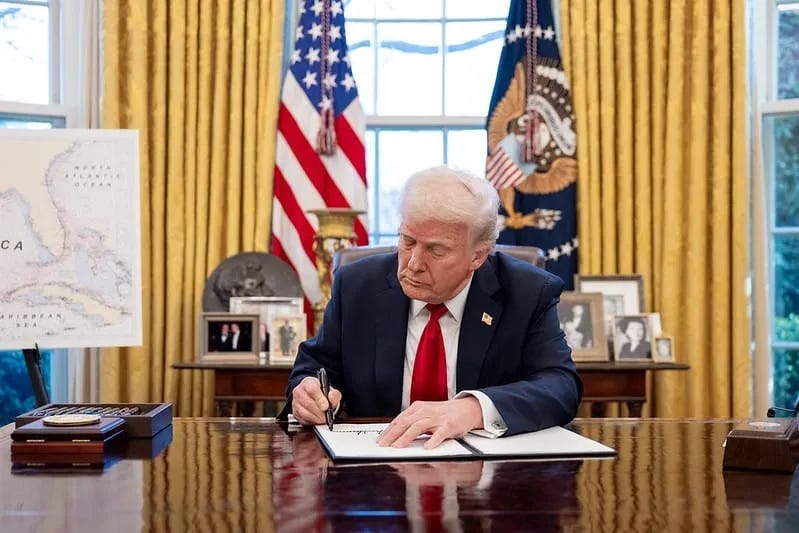Tariff Blitz Meets Missile Barrage
What happened?
President Trump lit a fresh fuse under global trade by decreeing a 15% baseline duty on most imports, as well as headline rates of 39% on imports from Switzerland and 25% on imports from India. A separate White House memo warned India that higher "secondary tariffs" would follow unless it reduced its purchases of Russian crude oil, which still supplies more than one-third of India's oil demand. Hours after the order was issued, Russia launched its heaviest strike on Kyiv this year, firing over 300 Shahed drones and eight Iskander-K missiles. The attack killed at least 31 people and injured 159 others.
Source: Official White House Photo
Why does this matter?
De-facto secondary sanctions: By weaponizing tariffs, Washington attempts to reduce Moscow's oil revenue without relying on the unstable UN price cap. Kremlin media framed the attack on Kyiv as "retribution" for US economic warfare, demonstrating how trade tools can provoke military responses.
Collateral hits: Swiss pharmaceutical exporters face higher costs, and the franc dropped 0.4% on the news. European equities and US futures dipped due to fears that the global economy has yet to experience the worst effects of protectionism.
Supply-chain inflation: New tariffs increase import costs just as US CPI accelerates again, complicating the Fed's path.
What's the counterpoint?
Supporters argue that tariffs fund US tax cuts (~$300 billion in annual revenue) and give Trump leverage without deploying troops. India can hedge by buying discounted Urals crude oil or turning to Middle Eastern blends. Russia has also proven adept at rerouting crude oil via "dark fleet" tankers. Markets largely absorbed earlier tariff rounds, and the S&P 500 remains near record highs.
finformant view
Using customs duties as a substitute for sanctions is an ingenious yet fragile strategy. Current success hinges on India. If New Delhi complies, Russian oil revenue will shrink. Otherwise, tariffs will merely tax US consumers and anger allies. Meanwhile, Moscow's initial response in Kyiv shows that economic pressure can escalate conflict rather than deter it.



